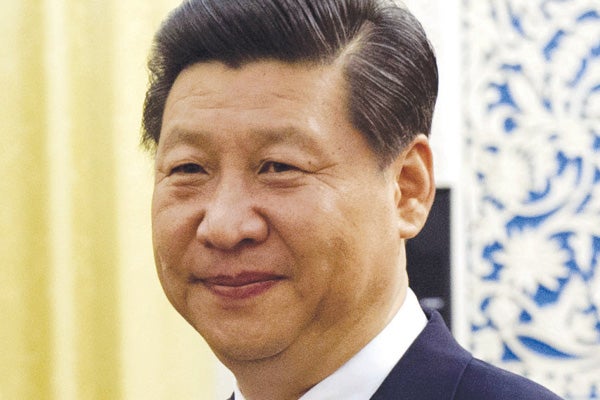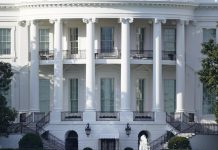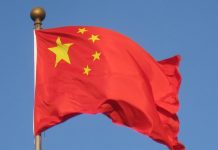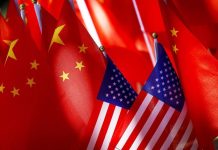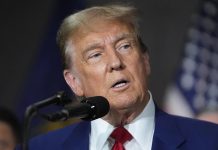DESPITE the complex challenges including the uncertainties of the China-US trade frictions facing China, the Chinese economy grew by 6,3% in the first half of the year laying a good foundation for achieving the projected full year growth of between 6% and 6,5%.
This is happening at a time China is continuing to foster good relations and cooperation with African countries under the Forum on China-Africa Cooperation (FOCAC) and the Belt and Road Forum for International Cooperation for the mutual benefit of the Asian nation and African countries, including Zimbabwe a strategic partner.
China, the second largest economy in the world with a gross domestic product (GDP) of over US$13 trillion, had a GDP of 45,093.3 billion yuan (US$6,552 billion) in the first half of 2019, data released by the National Bureau of Statistics of China shows.
The figures are in line with projections set out by the Chinese government in March.
A total 7.37 million jobs were created in urban areas, accounting for 67% of the 2019 target.
The drivers of the growth included agriculture. The overall output of summer grain was 141.74 million tonnes, an increase of 2.93 million tons from last year, hitting the highest record as that of 2017.
Industrial production remains stable although high-tech manufacturing soared.
The service sector grew fast with modern service industries performing well while market sales demonstrated a stable and rising trend with higher growth rate and share for online retail sales. In the first half of 2019, the total retail sales of consumer goods reached 19,521.0 billion yuan (US$2,836.2 billion), up by 8.4% year on year.
There was also a steady growth in investment while high-tech industries grew fast.
The total value of imports and exports of goods was 14,667.5 billion yuan (US$2,130 billion), a year-on-year increase of 3.9%. The total value of exports was 7,952.1 billion yuan (US$1,155 billion), up by 6.1%; the total value of imports was 6,715.5 billion yuan (US$975 billion), up by 1.4%.
The trade balance was 1,236.6 billion yuan (US$179,6 billion) in surplus, up by 41.6% year on year.
To cope with ongoing challenges and maintain steady growth, a number of measures were adopted, among them increasing deficit spending, launching new tax cuts and other fee reductions for businesses—totalling two trillion yuan, or 2% of China’s US$13 trillion economy—and boosting bank lending to small and private companies by 30%. China is also giving foreign investors greater access to its markets and allowing foreign firms to enter more sectors without Chinese partners.
A new foreign-investment law is in place and levels the playing field between foreign and domestic firms. The government will continue to improve the business environment, foster new momentums, improve weak links, expand the domestic market and promote coordinated development among different industries and regions.
China does and will not rely on massive economic stimulus, but will continue to open up and innovate to energise market players to keep its economy afloat.
With a population of 1,4 billion, a massive labour force of around 900 million and a huge pool of 170 million with higher learning or professional skills, China has a bright prospect for long-term sustained economic development with a huge domestic market potential to explore.
China, a strong friend of Africa, will also continue expanding ties with African countries and implement win-win projects for the Chinese and African countries through FOCAC and the BRI initiative.
Chinese President Xi Jinping last year pledged US$60 billion in financing for projects in Africa in the form of assistance, investment and loans during the FOCAC summit in Beijing.
He emphasised that the money had “no strings attached” but was meant to boost cooperation between China and Africa.
The figure includes U$15 billion in grants, interest-free loans and concessional loans, US$20 billion in credit lines, US$10 billion for development financing and US$5 billion to buy imports from Africa.
He also encouraged companies to invest at least US$10 billion in Africa between 2018 and 2021.
A co-ordinators’ meeting on the implementation of the follow up actions of the FOCAC summit was held in Beijing at the end of June to ensure that progress is made. This coordinator’s meeting was attended by a Zimbabwean delegation led by Foreign Affairs minister Sibusiso Moyo.
In a congratulatory message President Xi said he was satisfied with the “early harvests” that have brought tangible benefits to the Chinese and African people.
Speaking during the official opening of the meeting State Counsellor and Foreign Affairs minister Wang Yi urged leaders to follow up on the summit outcomes across the board and work toward a stronger China-Africa community with a shared future. He expressed satisfaction with progress made to boost cooperation.
“Last year’s successful summit has given rise to a new boom in China-Africa exchanges and cooperation. The implementation of the summit outcomes is in full swing. High-level engagement has never been closer, with 17 state and party leaders from the Chinese side visiting 25 African countries and the AU Headquarters,” Wang said.
“Collaboration on the Belt and Road Initiative is gathering pace, with cooperation documents signed between China and 40 African countries and the AU Commission.”
He said China and Africa had “jointly formulated country-specific lists, according to which more than 880 projects will be carried out in the coming three years”.
Major projects supported by grants or concessional loans from China are making steady progress.
“Last year, two-way trade again exceeded US$200 billion, making China Africa’s largest trading partner for the tenth straight year,” Wang said.
He said as the Communist Party of China celebrates seven decades of arduous struggle this year, China would remain committed to its original aspirations and strive for the great rejuvenation of the Chinese nation.
“In doing so, we will keep to the path of peaceful development, deepen reforms, expand opening-up and pursue high-quality Belt and Road cooperation with a view to promoting a new type of international relations and a community with a shared future for mankind,” Wang said.
He emphasised that China will stand unswervingly with Africa and other developing countries to safeguard the common interests of African and other developing countries “no matter how the international situation evolves”.
Wang noted that some outside forces have attempted to vilify and undermine China-Africa cooperation by fabricating the so-called “neo-colonialism” and “debt trap”. He said the allegation was groundless, and had been utterly rejected by the African people.
He said China would support African countries in upholding sovereignty, independence and territorial integrity, exploring the development path suited to their national conditions, and safeguarding peace and stability in the region.
Wang also called for China and Africa to remain committed to jointly developing the BRI as well as upholding multilateralism.
“Against the backdrop of rising unilateralism and protectionism, resurgent Cold-War mentality and talk of clash of civilizations, we, China and Africa, need to unequivocally uphold the UN Charter and the basic norms governing international relations, and take a clear stand against unilateralism, protectionism and bullyism in all manifestations,” he said.
“By doing so, we will be safeguarding not only our own legitimate development rights, but also the common interests of all developing countries and emerging economies, and, for that matter, we will be upholding international fairness and justice. We must never allow the law of the jungle to rule the world, nor should we accept the zero-sum game that puts the weak at the mercy of the strong.”
Zimbabwe like other African countries is also benefitting from co-operation with China. In April, Information minister Monica Mutsvangwa-led a delegation to attend the second BRI Forum for International Cooperation, while last month Finance minister Mthuli Ncube and Reserve Bank of Zimbabwe governor John Mangudya also visited the Asian nation.
China also assisted Zimbabwe after the country was hit by Cyclone Idai and is implementing a number of infrastructural projects including the construction of the new parliament building in Mt Hampden through a free grant.
The Victoria Falls International Airport expansion project, the Kariba South Hydro power station extension, the Hwange Power Plant, Robert Gabriel Mugabe International Airport expansion are also being carried out by the Chinese as part of the cooperation between the two countries.

